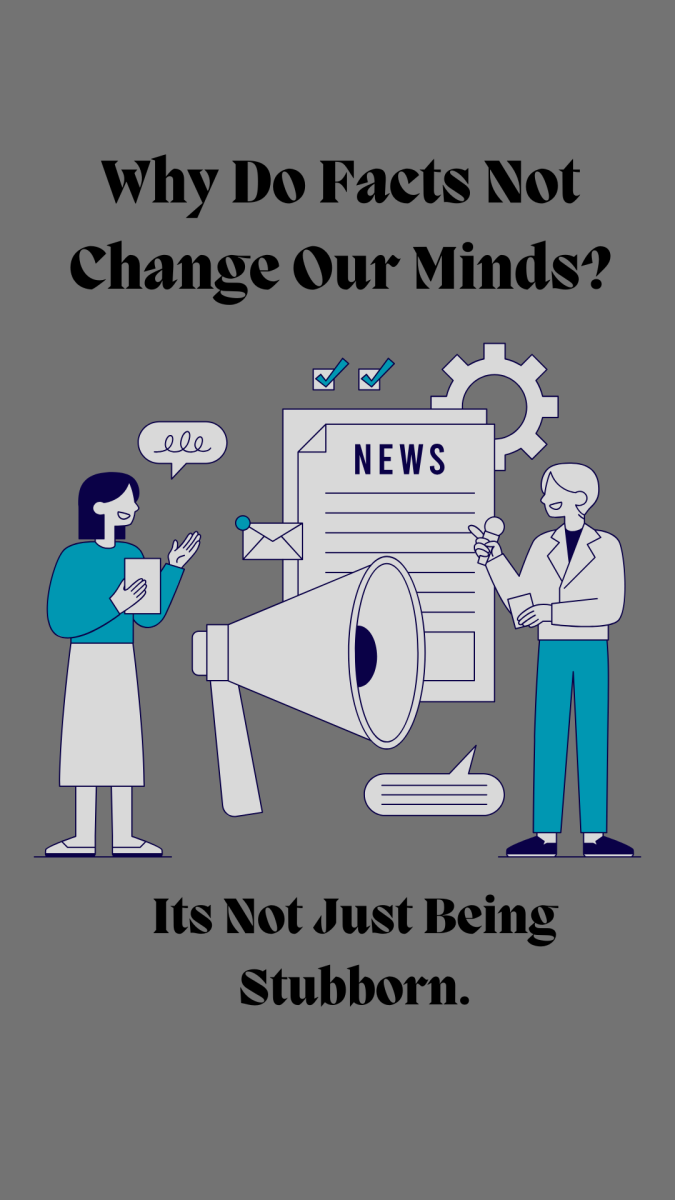Information nowadays is more accessible than ever, but misinformation is still spread like wildfire. Why do people still think they are right when they are proven wrong?
Research done by The Magazine says, ¨However, scientific research has confirmed: Facts alone aren’t enough to correct misinformation and change people´s minds.¨
After reviewing sources –The Magazine and The NewYorker- there were many similarities. I was able to organize it into the four categories below.
Mental Shortcuts-
Many people learn by repetition, which means the information that is typically stuck in our minds is heard over and over. Children as young as five are just as likely as adults to believe information they´ve heard multiple times. Mental shortcuts may work in some instances because of the world’s infinite truths. This is typically known as the ¨illusion effect.¨ The illusion effect can become concerning in terms of social media. Misinformation can spread rapidly, particularly on social media. Incorrect claims can gain traction and become widespread ¨facts.¨
Retention-
The human brain retains information uniquely. Typically, instead of replacing the incorrect information in our brains, our brain adds to it. When people are asked to remember a piece of information both ideas may come to mind. People’s brains may even have the incorrect information dominate the corrected. This is known as the ¨continued influence effect.¨
Emotions & Values-
Facts may sometimes be part of stories, which means part of misinformation as well. Changing facts may affect people’s emotions since it can relate to sensitive topics. Most times, humans do not want to seem unknowledgeable and would rather be incorrect than admit they are wrong. People tend not to believe things if they are not told in a respectful way. According to The NewYorker, empathy, and patience are necessary for a person to be able to have facts change their minds.
Beliefs-
Our beliefs play a giant role in how we process information. New information can make us uncomfortable based on what we believe. Many people tend to avoid changing their minds to avoid feeling discomfort. Keep in mind that our brain can create shortcuts to prevent discomfort.
Correcting misinformation we believe to be correct can be incredibly difficult. Although it’s hard it’s important to recognize your mistakes as well as do your research.










